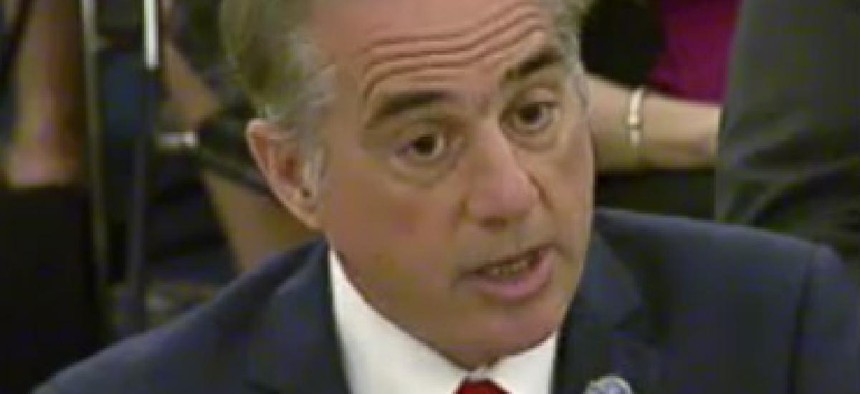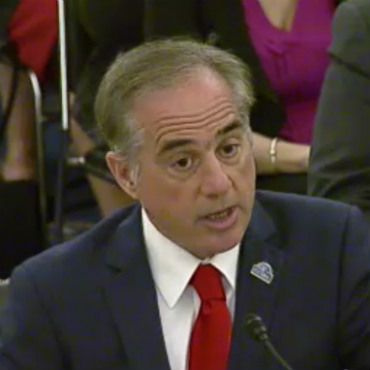VA looks to Congress to improve cost management

The Department of Veterans Affairs also plans to roll out a series of initiative throughout November to improve its veterans' benefits services.

Secretary of Veterans Affairs David Shulkin
The Department of Veterans Affairs is working with Congress to improve its financial management. The agency also plans to roll out a series of initiative to improve its veterans’ benefits services.
At a Nov. 6 National Press Club event, VA Secretary David Shulkin lamented the department’s historical challenges in managing big, costly projects, and likened making projections for them to “being asked to look at a crystal ball.”
“We have great difficulty in doing financial projections so we can understand our needs, and how we can provide services,” he said, “and we have a great deal of problems on delivering projects on time and on budget.”
Shulkin noted that while VA is responsible for some of the issues, “much of the difficulty has to do with the complexity of the laws that we are given by Congress.” He also pointed to excessive siloing within VA.
Shulkin said VA is working with both the House and Senate veterans affairs committees “to come up with financial rules … that are predictable, easier to use, easier to manage, and then let us be accountable for a rational system, rather than what we have now, which is a system that is completely irrational.”
He also announced that throughout November, which the president has dubbed “National Veterans and Military Families Month,” VA plans to roll out a series of initiatives aimed at better service delivery.
Shulkin said the initiatives will include a national ID card for veterans, as well as a 24-hour, seven-day-a-week hotline set up in the White House to handle veteran complaints.
Since taking over as secretary, Shulkin has said his top priorities for improving service delivery to veterans are to improve the timeliness of service and disability claims appeals, and to generally modernize the VA.
For evidence of progress on the modernization effort, Shulkin pointed to the ongoing adoption of a commercial major electronic medical records system, publicly posted appointment wait times, plans to reduce VA's real estate footprint, and the department's Nov. 2 announcement of the launch of the Rapid Appeals Modernization Program to expedite appeal decisions on benefits claims.
Legislatively, Shulkin applauded Congress’s passage of a slate of bills aimed at supporting veterans and VA services. However, he added that Congress also should tackle veterans’ benefits.
“Policymakers just haven’t thought strategically about veterans benefits over the past 150 years,” he said. “They just kept piling on benefits without any clear objective in mind, other than patriotic gratitude and political expedience, sometimes more of the latter than the former.”
The result, he said, is that “we have a system that, in my opinion, is far too complex, filled too much bureaucracy.”
Shulkin also called for the establishment of a veterans’ benefits advisory board “to bring clarity about what we’re trying to do for veterans... and how we can do that the best way.”
NEXT STORY: House targets burrowers, new hires at agencies


